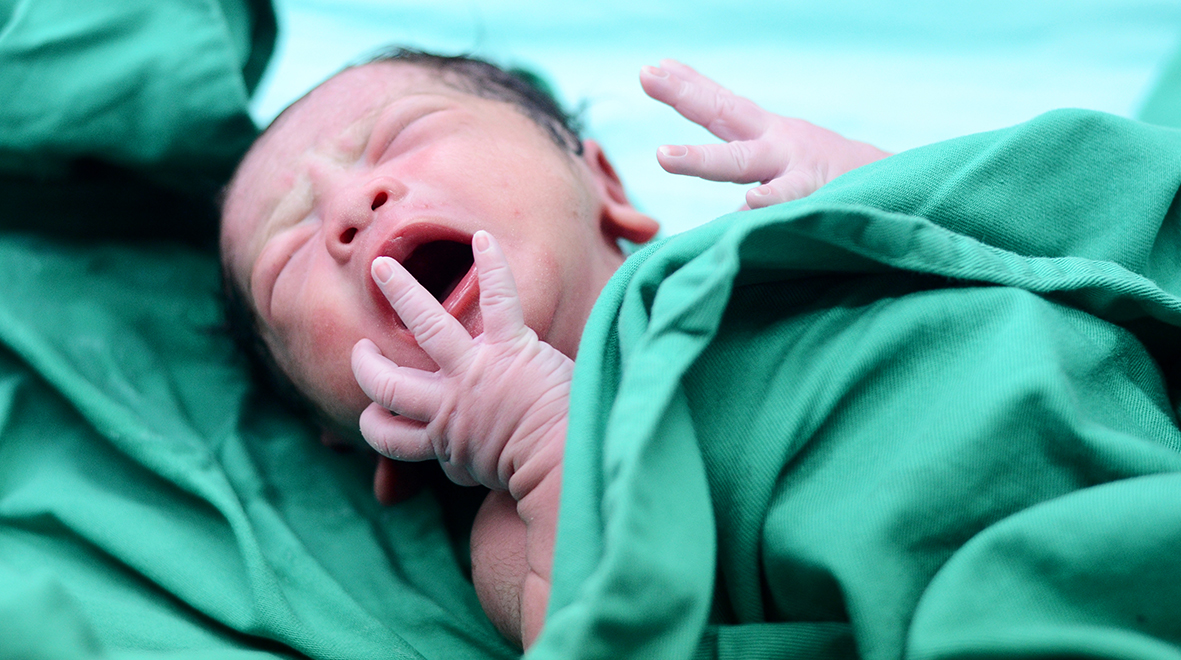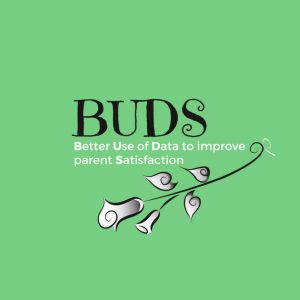
Dr Susanna Sakonidou writes on how the BUDS project is improving the experience for parents of babies in neonatal care with an app.
Alarms going off, doctors and nurses rushing across the ward, parents desperately trying to catch someone’s eye to get an update. The reality of having babies in neonatal care is undoubtedly traumatic for parents. As high as 35% of them can develop symptoms of post-traumatic stress disorder (1), which can in turn interfere with the process of baby-parent bonding (2).
Having a baby that requires neonatal care is more common than one might think. One in eight babies born in the UK are admitted to a neonatal unit and surveys show that parents struggle to adjust to this unfamiliar environment. Getting verbal updates about their babies is difficult, given how busy staff is dealing with emergencies on the unit. As a result, parents frequently feel excluded from their babies’ care.
Little written information is provided to parents, apart from information packs on admission and discharge from the unit. Indeed, the latest 2014 NHS England Parents’ Experience of Neonatal Care survey showed parents across the UK were deeply dissatisfied with the communication of clinical information and involvement in neonatal care (3), with less than half of them being able to speak to a doctor as much as they wanted.
There is clearly an ongoing need to improve how we communicate with these parents. Some interventions to improve parent involvement in care have yielded good results, such as encouraging parents to hold babies skin-to-skin, Kangaroo Care, which was recently shown to improve children’s quality of life up to 20 years later (4). However, there is still a need to improve the provision of regular information to parents. There has been a focus on providing regular written updates to parents via paper letters in USA (5) and text messages in Israel (6), which could prove to be valuable adjuncts to verbal updates from staff.
 The neonatal research team at Chelsea and Westminster hospital launched the BUDS project in October 2016. BUDS will develop a communication tool that will directly extract infant information from the neonatal electronic patient record (EPR) and provide it to parents; initially in the form of printed daily summary sheets and subsequently electronically, through a mobile phone application.
The neonatal research team at Chelsea and Westminster hospital launched the BUDS project in October 2016. BUDS will develop a communication tool that will directly extract infant information from the neonatal electronic patient record (EPR) and provide it to parents; initially in the form of printed daily summary sheets and subsequently electronically, through a mobile phone application.
Doctors and nurses routinely record information such as weight and type of feeds on every baby, every day on EPR. This information from all UK neonatal units directly enters the National Neonatal Research Database (NNRD), which is used for national auditing and research. Delivering routinely recorded information to parents will eliminate the need to solely rely on a clinician’s availability for verbal updates and will empower parents to obtain information about their baby themselves, by logging on to the app.
Parents are leading this project as part of the BUDS research team, steering group and neonatal charity Bliss. The BUDS team is interviewing parents who have had babies needing neonatal care previously (now discharged) in focus groups. We are exploring their past experience of information sharing on neonatal units, how they would have liked to be informed and how this fits with the EPR information electronically available. The summary sheet content will be co-designed with parents and these parent meetings have already commenced. Once we finalised the communication tool’s information content with parents we will be sourcing out a commercial company to incorporate these updates into a mobile phone application. We will pilot the communication tool in paper form first on the Chelsea and Westminster neonatal unit to further improve it and then roll it out to the unit for testing. We are aiming to start work on the unit around March 2018.
In order to test the app’s impact, we will develop and validate a suitable questionnaire for measuring parent satisfaction in collaboration with the Picker Institute, an international charity with extensive experience in developing health satisfaction surveys. Parent satisfaction with communication of clinical information and involvement in care will be measured at baseline and following implementation of the tool. We will also test the completeness of data in the NNRD pre and post tool usage, as we think that if staff members know that EPR information goes to parents they might record it in a better way.
BUDS has been awarded 3 grants: A NIHR doctoral research PhD fellowship grant, a NIHR CLAHRC NWL grant (Collaboration for Leadership in Applied Health Research and Care Northwest London) for quality improvement support and a Rosetrees trust grant. It is also supported by the NDAU (Neonatal Data Analysis Unit) for statistical analysis. Parent recruitment is ongoing and we would love to welcome more parents to our team.
If you are a parent of a baby previously needing neonatal care wanting to help or for further information please contact the project lead Susanna, or visit:
References
- Lefkowitz et al., Prevalence and correlates of posttraumatic stress and postpartum depression in parents of infants in the Neonatal Intensive Care Unit (NICU). J Clin Psychol Med Settings; 2010 Sep; 17(3): 230-7. doi: 10.1007/s10880-010-9202-7.
- Lopez-Maestro et al., Quality of attachment in infants less than 1500g or less than 32 weeks. Related factors. Early Hum Dev; 2016 Nov 30; 104: 1-6. doi: 10.1016/j.earlhumdev.2016.11.003.
- Burger, Sarah-Ann Miss; King, Jenny Miss; and Tallett, Amy Dr., “Parents’ experiences of neonatal care in England,” Patient Experience Journal: Vol. 2: Iss. 2, Article 7; 2015. doi: http://pxjournal.org/journal/vol2/iss2/7
- Charpak et al., Twenty-year Follow-up of Kangaroo Mother Care Versus Traditional care. Pediatrics, 2016; doi: 10.1542/peds.2016-2063
- Palma et al, Impact of an EMR-Based Daily Patient Update Letter on Communication and Parent engagement in a Neonatal Intensive Care Unit J of Partic Med; 2013.
- Globus et al, The use of short message services (SMS) to provide medical updating to parents in the NICU, J of Perinatol 2016; 1-5
Dr Susanna Sakonidou is a Clinical Research Fellow in Paediatrics in the Department of Medicine.
Susanna, Could I get more information regarding BUDS and if it is up and running yet? I had been thinking of doing something like this with a patient portal through our EMR with my Doctorate degree. If you could help me out that would be great.
Dear Lynette, thank you for your message. Please click on my name in the contact details section at the end of the article to email me directly.